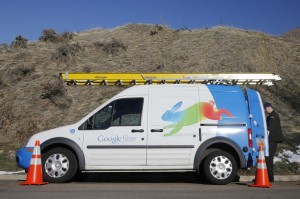Occasionally I will post opposing opinions and different views about broadband services. This article below posits that broadband Internet provides no value to the community and individuals yet goes on to claim that such an asset should be owned by the government.
The economic benefits to a broadband network are well documented and readily available if the writer chose to search and read them. I can definitely provide personal experiences how broadband Internet has enriched my life and made me more productive. Also, I take aim at why the government should own this network. With his logic, the government should own the other broadband networks as well. I quickly discounted the validity of his claim with his poor analogies and oxymoronic reasoning. I applaud Google for coming to town and introducing true competition in the markets that they enter.
BY DAWSON GAGE
The announcement of a deal with Google to bring ultra-fast Internet to the Triangle is being hailed like rain in the desert. Amid an economy that, flashes of optimism aside, remains in stagnation, we imagine that the super-fast Internet will super-charge our businesses, our schools, our very lives.
High-speed Internet doesn’t really improve the speed or, more importantly, the quality of how most of us do business –most of us don’t work for Netflix or engage in high-speed financial speculation. It also doesn’t make children learn faster or better – I somehow doubt that more HD streaming video will solve our education problems. Continue reading







![minnesota-hooks-up-10-gb-fiber-network[1]](https://inphotonicsresearch.com/wp-content/uploads/2014/12/minnesota-hooks-up-10-gb-fiber-network1-1024x576.jpg)